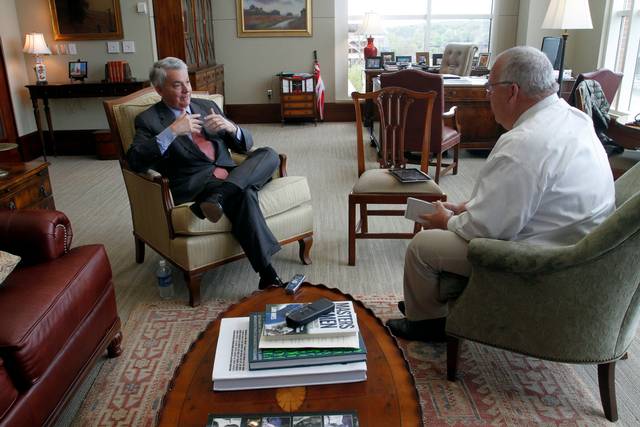 PR professionals can best prepare their CEOs and other executives for media interviews by learning how journalists prepare for the interviews.
PR professionals can best prepare their CEOs and other executives for media interviews by learning how journalists prepare for the interviews.
A survey by the Public Relations Global Network (PRGN) of journalists in North America reveals what information sources reporters review before they interview CEOs and how PR and corporate executives can better prepare for media interviews. The survey also discloses some noteworthy differences between how North American and European journalists prepare for interviews and work with company PR pros.
“One of the biggest dangers facing CEOs who engage in media relations is failing to take the time to prepare for the interview,” said Aaron Blank, CEO/president of The Fearey Group and the member of PRGN conducting the survey. “Ignorance can be costly to a CEO or his/her company.”
The Importance of Social Media Profiles
Journalists most frequently turn to LinkedIn and Twitter to prepare for interviews: 80% of journalists say they view an executive’s LinkedIn profile before an interview. Twitter and Facebook came in second and third with 70% and 64%, respectively. The lesson: Brush up social media profiles, especially those on LinkedIn, before interviews.
Most journalists (82%) use past media coverage as their primary preparation tool. That was followed by a company’s website (58%) and their annual reports and press releases (both at 56%). Because reporters usually view past media coverage, the sooner PR places positive news coverage, the better.
Most journalists (88%) prefer to conduct interviews in the executive’s office. It’s important that the office creates a good impression.
European Differences
European journalists may be more accommodating. Forty-one percent of journalists said they always allowed the CEO or the PR firm to review the CEO’s quotes before publication, in contrast to North American reporters who rarely allow executives to review quotes or articles before publication. In addition, 21% said they allowed a CEO or PR firm to review the entire article in advance, depending on the relationship with the company or PR agency.
The top sources for interview preparation by European journalists were annual reports (64%), news releases (59%) and past media coverage (58%). Interestingly, social media barely scored as an information source (16%), ranking tenth.
Journalists in the U.K., Ireland, Spain, Italy and Portugal are much less willing to allow pre-publication review of quotes or articles, compared to journalists in Germany, the Netherlands, Poland and Denmark, PRGN states in a Business Wire news release.
German and Italian journalists consider a CEO’s private life when forming an impression of him or her. Forty-four percent of Italian journalists and 42% of German reporters said a CEO’s private life was important in helping them assess the CEO.
British and Irish journalists prefer to conduct CEO interviews by phone. While Europeans overall prefer on-site interviews, only 33% and 43%, respectively, of U.K. and Irish journalists prefer them. They would rather conduct interviews by phone.
The Importance Preparation
Media relations experts, such as Brad Phillips at Mr. Media Training, consistently emphasize the importance of preparing for media interviews. Training, research and planning your key message are the elements of successful media interviews.
Corporate executives and spokespersons who conduct off-the-cuff media interviews are more apt to give inappropriate or misleading responses. Preparation should include establishing the purpose of the story beforehand, the reason for the interview, and what the reporter expects to accomplish in the interview.
Experts recommend researching the publication and its audience to understand their viewpoints, pain points and the reporter’s agenda. The research is critical for anticipating questions and planning your responses.
Bottom Line: PR can help corporate spokespersons prepare for media interviews by learning how journalists prepare to interview CEOs. A survey of North American and European journalists indicates that journalists consult a CEO’s social media profiles, the corporate website, annual report, and recent news stories. CEOs too must prepare for interviews with background on the publication and the reporter, a briefing on the purpose of the interview, and by having a set of key “talking points” or messages for the interview.
William J. Comcowich founded and served as CEO of CyberAlert LLC, the predecessor of Glean.info. He is currently serving as Interim CEO and member of the Board of Directors. Glean.info provides customized media monitoring, media measurement and analytics solutions across all types of traditional and social media.




